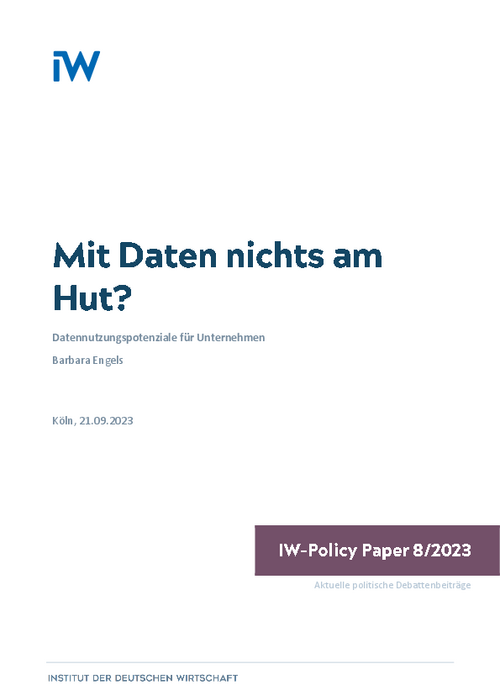If companies want to survive on the market in the long term, they cannot avoid the topic of data.

Nothing to do with data?: Data utilisation potentials for companies

If companies want to survive on the market in the long term, they cannot avoid the topic of data.
However, it is also true that not every company can realise the same data potential. The high expectations regarding the potential of data are strongly determined by the success of a few corporations, the so-called MAAMA companies Meta, Alphabet, Amazon, Microsoft and Apple. These expectations are exaggerated for most other companies. A direct comparison with the MAAMA companies can lead to unrealistic expectations because the value creation potential of data differs considerably from company to company. It depends on the company's DNA as well as its product offering and business model. A company’s DNA is the culture within a company that gives rise to the company's natural means and the self-evident way in which and with which a company operates. Regardless of the different potentials for companies to create value from data, however, it is important that every company knows what data it possesses – and what it could theoretically and practically do with it. This is because the use of data, both within the company and across companies, can have a variety of advantages for companies. Data use can streamline business processes, improve products, services and business models, and help companies comply with regulatory requirements. This policy paper takes a closer look at the benefits of data use. It also shows why many companies in Germany do not yet share data with other companies. This is shown by the results of a representative survey of 1,051 companies from the industry and industry-related services sectors, which was conducted in autumn 2022. In order for all companies – even those whose products and business models have no clear connection to data – to realise that they too can benefit from the (cross-company) use of data, companies need the support of politics. This is because it takes a lot of effort for companies to make a data inventory, to become aware of their own data stocks and to push the use of data within the framework of an efficient data governance. It is therefore important that companies are supported in their search for cooperation partners through appropriate events and digital platforms. Use cases and best practices must be known, understandable and as close as possible to the company's own reality. Especially for legal topics, there must be low-threshold as well as free information and advisory services. SMEs in particular are dependent on support.

Nothing to do with data?: Data utilisation potentials for companies

More on the topic

Data Utilisation and Data Sharing: The Potential and the Reality in German Companies
Companies that store their data extensively in digital form, process it in a structured manner and use it in a variety of ways can become particularly efficient members of the data economy.
IW
The Law and Economics of the Data Economy: Introduction to the Special Issue
This article intends to provide a framework to better understand the economic problems and legal challenges resulting from the transition of the European economy to a data economy.
IW